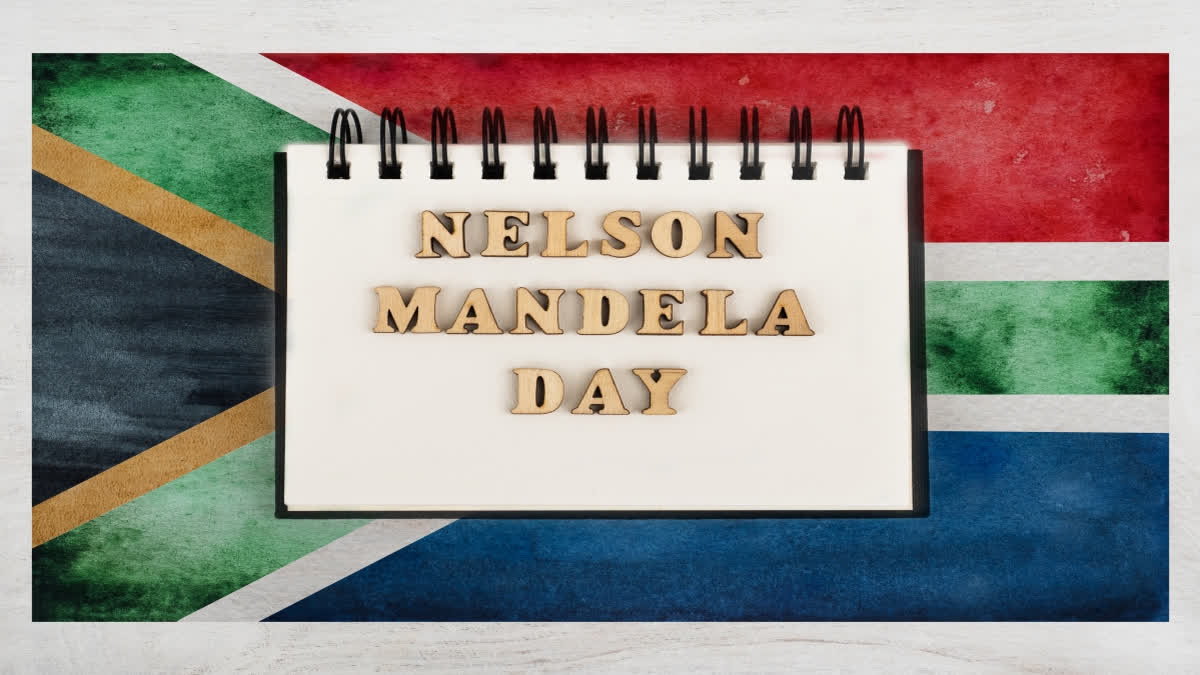New Delhi: Nelson Mandela International Day, also known as Mandela Day, is celebrated annually on July 18th, Nelson Mandela's birthday. The United Nations officially declared the day in November 2009 and was first celebrated on July 18, 2010. The purpose of Mandela Day is to honour Nelson Mandela's legacy and to inspire individuals to take action to help change the world for the better, following Mandela's example of dedication to the service of humanity.
Mandela Day encourages people to spend 67 minutes helping others, symbolising the 67 years Nelson Mandela spent fighting for social justice, equality, and human rights. Activities on this day can include community service, volunteering, and acts of kindness that contribute to improving the lives of others.
History of Nelson Mandela International Day:
Nelson Mandela International Day, or Mandela Day, was officially declared by the United Nations in November 2009. The initiative to establish this day was driven by the desire to honour the legacy of Nelson Mandela, an iconic figure in the fight against apartheid in South Africa and a global symbol of peace, reconciliation, and social justice.
Key Milestones in the History of Mandela Day:
Early Advocacy: Before the official recognition by the United Nations, efforts were already underway to establish a day in honour of Nelson Mandela. Various organisations and individuals advocated for a day to recognise Mandela's contributions to peace and freedom.
UN Declaration: In November 2009, the United Nations General Assembly formally declared July 18 as Nelson Mandela International Day. The resolution acknowledged Mandela's contributions to the culture of peace and freedom and called upon people around the world to take action and inspire change.
First Mandela Day (2010): The inaugural Mandela Day was celebrated on July 18, 2010. On this day, people were encouraged to spend 67 minutes of their time in service to others, representing the 67 years Mandela dedicated to public service, including his struggle for social justice, human rights, and the end of apartheid.
Global Participation: Since its inception, Mandela Day has grown into a global movement, with individuals and organisations participating in various activities and initiatives aimed at making a positive impact in their communities. The day has become a call to action for people everywhere to recognise their ability to change the world for the better.
Mandela's Legacy: Nelson Mandela passed away on December 5, 2013. His legacy continues to inspire millions around the world, and Mandela Day serves as a reminder of his life's work and the ongoing struggle for justice, equality, and human dignity. Mandela Day emphasises the power of collective action and the idea that each person can make a difference. It promotes the values of selflessness, solidarity, and service, encouraging people to take responsibility for their communities and work towards a more just and equitable world.
Significance of Nelson Mandela International Day:
The day serves as a call to action, inspiring people to actively engage in their communities and advocate for justice, equality, and human rights, reflecting Mandela's lifelong dedication to these principles. Individuals are encouraged to spend 67 minutes of their time helping others, symbolising the 67 years Nelson Mandela spent working towards social change.
This fosters a culture of community service and volunteerism. The day raises awareness about ongoing global issues such as poverty, inequality, and discrimination, encouraging people to address these challenges in their communities. Mandela Day promotes the values of peace, reconciliation, and mutual understanding, reflecting Mandela's efforts to heal a divided South Africa and create a more inclusive society.
The day serves to educate and inspire future generations about the importance of standing up for justice and human rights, motivating young people to continue Mandela's work. Mandela Day is celebrated worldwide, fostering a sense of global unity and solidarity in the pursuit of common goals such as social justice, equality, and human dignity. Beyond symbolic gestures, Mandela Day encourages people to undertake practical actions that can make a tangible difference in their communities, whether through volunteering, supporting charitable organisations, or initiating local projects.
By celebrating Nelson Mandela International Day, individuals and organisations around the world are reminded of their collective power to drive positive change and contribute to a better, more equitable world, in the spirit of Nelson Mandela's enduring legacy.



